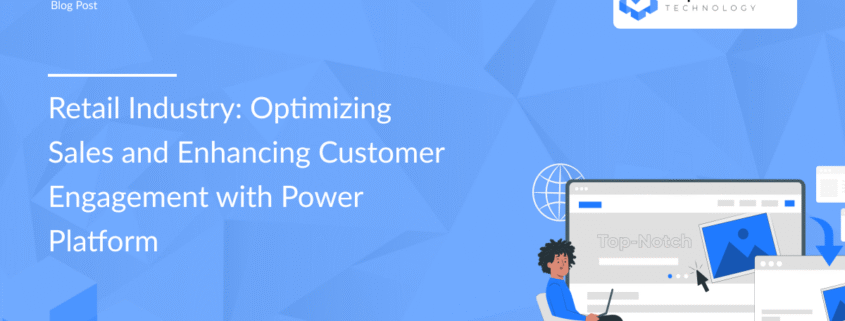Retail Industry: Optimizing Sales and Enhancing Customer Engagement with Power Platform
Introduction: The retail industry has been profoundly impacted by digital transformation, with changing customer preferences and increasing competition from online retailers. Retailers need to optimize their operations, personalize their marketing efforts, and enhance customer experiences. Microsoft Power Platform can help retail businesses achieve these goals by automating processes, providing valuable insights into customer behavior, and improving sales and inventory management.
Challenges in Retail:
- Customer Engagement: Consumers expect personalized experiences and seamless interactions across all touchpoints, from online shopping to in-store visits.
- Inventory Management: Retailers must manage inventory effectively to avoid stockouts and reduce excess inventory.
- Sales and Marketing Optimization: Retailers must develop targeted marketing campaigns and measure their effectiveness.
- Omnichannel Operations: Managing operations across multiple channels, including physical stores, e-commerce, and mobile, can be challenging.
How Power Platform Helps in Retail:
- Power Apps: Retailers can build custom apps to manage inventory, track sales, and handle customer service inquiries. A mobile app can allow employees to check inventory in real time, process orders, and manage customer service requests.
- Power Automate: Power Automate can automate inventory restocking, order fulfillment, and customer communication. For example, when inventory reaches a predefined threshold, Power Automate can trigger an order for new stock and notify the relevant staff.
- Power BI: Power BI helps retailers analyze sales data, track customer behavior, and identify trends. By visualizing sales performance, customer preferences, and inventory levels, retailers can make data-driven decisions to improve customer satisfaction and boost sales.
- Power Virtual Agents: Retailers can implement virtual agents to handle common customer inquiries, such as product availability, delivery status, or return policies. This reduces the workload on customer service agents and improves response times.
Case Study: A large retail chain adopted Power Platform to optimize inventory management and personalize customer interactions. By using Power Automate for inventory tracking and Power BI for customer analytics, the retailer reduced stockouts by 25% and increased sales by 15%.
